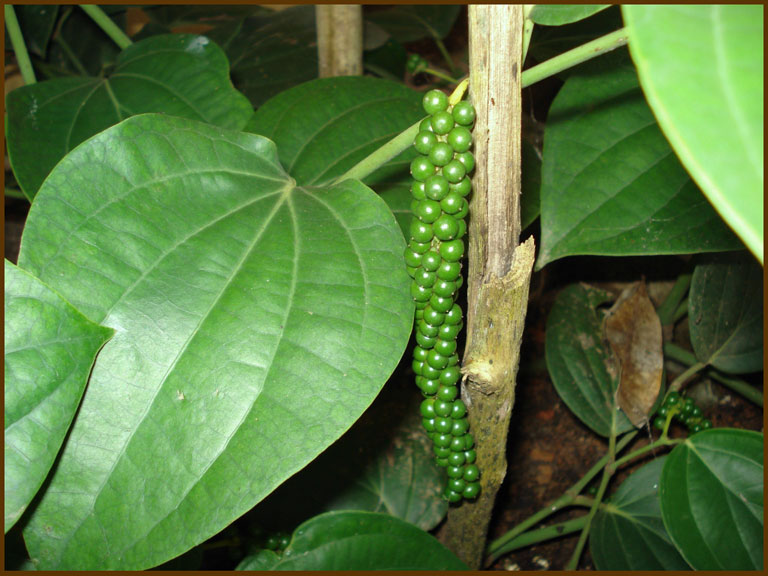
Black pepper is known worldwide as the "King of Spices" and is a commonplace component of daily life nearly everywhere you might travel. Although this modest organism usually goes unnoticed in the hustle of the modern world, there was once a time where this fabled spice was the origin of wars, forged and shaped ancient trade routes, and was a symbol of elite social status.
This woody vined perennial plant is native to an area known as the Malabar Coast in southwest India. Piper nigrum thrives in the lush, humid, tropical evergreen forests lining mountainsides throughout the region. This area is home to the present day Indian states Kerala, Karnataka, Tamil Nadu, and Goa.
Black pepper is now cultivated a cash crop in twenty six countries around the world, most notably Indonesia, Malaysia, Brazil, Vietnam, China, and Thailand. In terms of economic value Piper nigrum is the most widely traded spice in the world, accounting for between 20%-45% of the total worldwide spice imports in the last two decadses. The coveted trade product extracted from the organism is the dried, mature fruits known commonly as peppercorns. These small peppercorns are used either whole or ground as a spice and flavoring agent in food, as a preservative agent in various products, or even as a source of beneficial medicinal compounds.
To learn about the history of this organism, click here >>
Design: Adam Haggerty - UW La Crosse - Last modified 4/16/2011
